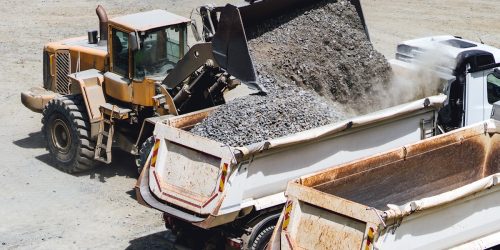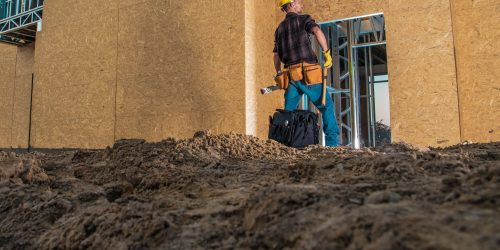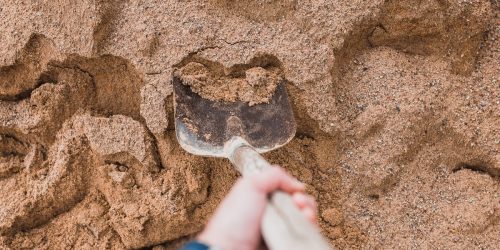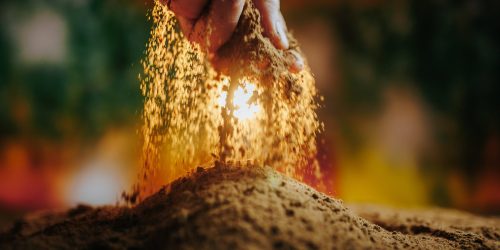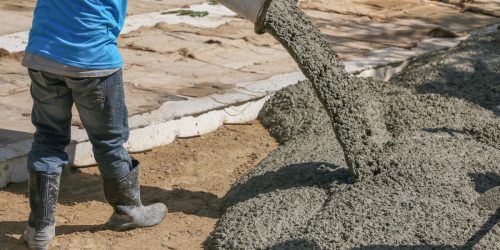
From the shimmering beaches to the bustling cityscape, Miami stands as a testament to the stunning synthesis of natural beauty and architectural prowess. Among these constructions, a particular craft leaves an indelible mark, anchoring the city’s skyline with both resilience and aesthetic appeal. This craft is masonry, a tradition with ancient roots that is being embraced today for its remarkable sustainability, energy efficiency, and timeless allure.
This article will illuminate the powerful advantages of masonry in modern construction. Here in Miami, where the sun blazes and the sea ebbs and flows, masonry offers unique benefits tailored to our local environment.
Discover why masonry is more than just construction; it’s a testament to human creativity and adaptation. It blends the timeless durability of stone with the demands of modern, sustainable architecture, resulting in buildings that are as enduring as they are beautiful. If you’re interested in the future of construction, or just curious about the structures that define our cityscape, then buckle up for a deep dive into the captivating world of masonry.
What is Mason Sand?
Mason sand is a fine-grained, versatile construction material that has been used for centuries to create stunning and durable structures. It plays a crucial role in construction projects and landscaping, providing strength, stability, and improved soil texture.
In Miami, Abraham Sand & Rock is a specialized construction company that can provide you with quality and necessary construction materials. One of the unique properties of mason sand is its ability to hold moisture, making it an ideal material for creating mortar for bricklaying or concrete for various construction projects. The fine grains of mason sand are also effective for filling in small gaps or spaces between bricks or stones in construction projects.
The sand particles are created by crushing, washing, and screening natural sand, typically from quarries, riverbeds, or beaches, to remove any impurities or irregularities in the particle size. The result is a clean, uniform sand that is free of rocks, debris, and other organic matter. It is typically composed of a mixture of sand particles that range in size from 0.063 mm to 2 mm in diameter, making it finer than other types of sand such as playground sand or beach sand.
Due to its consistent particle size and uniformity, mason sand is also widely used in landscaping projects, including in the construction of sandboxes, volleyball courts, and golf courses. It is also commonly used as a base material for pavers and other outdoor hardscaping projects.
Uses Of Mason Sand In Construction
Mason sand has many uses in construction and landscaping projects due to its fine, uniform particle size and ability to hold moisture. Here are some of the most common uses of mason sand:
- Masonry: Mason sand is an essential ingredient in creating mortar, which is used to bind bricks, stones, or other masonry units together. The fine grains of mason sand allow for better bonding and a smoother finish, making it ideal for bricklaying, stonework, and other masonry applications.
- Concrete: Mason sand is also used in the production of concrete, which is used in a wide range of construction projects. When mixed with cement, water, and aggregates, mason sand helps to create a smooth, workable concrete mix that can be molded into various shapes and sizes.
- Sandboxes: Mason sand is a popular material for filling sandboxes due to its fine, soft texture, and ability to hold moisture. Unlike other types of sand, mason sand is free of rocks, debris, and other organic matter, making it safer and more comfortable for children to play in.
- Volleyball Courts: Mason sand is also commonly used as a playing surface for volleyball courts due to its fine, uniform texture. The sand provides good footing, cushioning, and traction, making it easier for players to move around and dive without getting injured.
- Golf Courses: Mason sand is an essential component in creating topdressing mixes used on golf courses. The fine grains of mason sand allow for better drainage and root development, while also providing a smooth, even surface for golfers to play on.
- Landscaping: Mason sand is also commonly used in landscaping projects as a base material for pavers, walkways, and retaining walls. It can also be used to level out uneven surfaces and create a smooth, level surface for other landscaping materials like mulch or decorative stones.
Benefits Of Mason Sand
Mason sand is a versatile and high-quality sand that offers numerous benefits in a variety of applications. Some of the key benefits of using mason sand include:
- Improved Workability: Mason sand has a fine and consistent texture that allows for easier mixing and application of masonry materials such as concrete, mortar, and grout. Its smooth and even particle size distribution ensures that the mixture is homogenous and that it can be spread evenly.
- Stronger Bonding: The fine particles in mason sand create a tight and strong bond between masonry materials, resulting in a more durable and long-lasting finished product. This is particularly important in masonry applications such as bricklaying, where the strength and integrity of the structure are critical.
- Improved Drainage: The fine texture of mason sand also makes it an effective material for improving drainage in landscaping and construction projects. It can be used as a base layer under pavers or concrete slabs, allowing water to drain away from the surface and preventing erosion and soil instability.
- Safer Play Surfaces: Mason sand is a popular choice for sandboxes and playgrounds because of its fine texture and low dust content. This makes it a safe and enjoyable surface for children to play on, while also minimizing the risk of respiratory problems or allergic reactions.
- Better Turf Growth: Mason sand is also used in golf course maintenance and turf management, as its fine texture allows for better water infiltration and root growth. It can be applied to topdressing or aerification of turf, improving soil quality, and promoting healthy plant growth.
- Improved Aesthetics: Finally, mason sand is also a popular choice for landscaping and decorative applications, such as garden paths or sand sculptures. Its fine and consistent texture gives it an attractive appearance, and it can be used to create intricate patterns or designs.
How To Choose The Right Mason Sand
Not all sand is created equal, so how do you know which mason sand is perfect for your project? Let’s dive into the factors you need to consider.
When selecting the right mason sand for your construction or landscaping project, it’s essential to consider factors such as particle size and texture. Mason sand should be fine-grained, with a smooth and consistent texture that allows for excellent compaction and workability.
Here Are Some Tips For Choosing The Right Mason Sand
- Check the color: Mason sand is typically light tan or beige in color. A consistent color indicates a uniform particle size and texture, which is crucial for achieving the desired results in your project.
- Test the texture: Rub a small amount of mason sand between your fingers. It should feel smooth and free of any large particles or debris.
- Consult with professionals: If you’re unsure about the quality of mason sand, consult with a construction or landscaping professional for guidance.
By choosing the right mason sand, you’ll ensure the success of your project and enjoy the many benefits this versatile material has to offer.
Considerations For Using Mason Sand In Miami
When using mason sand in Miami, there are several important considerations to keep in mind. These include:
- Availability And Sourcing: Mason sand may not be readily available in all areas of Miami, so it’s important to research local suppliers and determine the best source for your project. Look for suppliers that specialize in construction and landscaping materials, and be sure to compare prices and quality before making a purchase.
- Climate And Environmental Factors: Miami’s climate and environmental conditions can impact the performance of mason sand in certain applications. For example, high humidity levels can affect the drying time of concrete or mortar, while heavy rainfall can lead to erosion and soil instability in landscaping projects. It’s important to choose the right type and grade of mason sand for your specific project and to take environmental factors into account when planning and executing the project.
- Cost Considerations: Mason sand prices can vary depending on factors such as quality, quantity, and location. Be sure to obtain quotes from multiple suppliers and consider the long-term benefits of using high-quality mason sand, such as improved durability and aesthetics.
- Local Regulations And Building Codes: Miami has specific regulations and building codes that must be followed when using mason sand in construction and landscaping projects. For example, there may be restrictions on the use of certain types of sand in certain areas or specific guidelines for mixing and applying masonry materials. It’s important to consult with local authorities and ensure that your project is in compliance
Throughout this article, we’ve explored the many benefits and uses of mason sand in construction and landscaping projects. From creating strong and stable foundations to leveling lawns and improving soil drainage, mason sand is a versatile and indispensable material that can elevate your projects to new heights.
So, the next time you’re planning a construction or landscaping project, remember the humble yet powerful mason sand. With its strength, stability, and versatility, it’s the secret ingredient for a successful and beautiful outcome. Contact us today to book a consultation.
LOOKING FOR THE BEST SUPPLIER IN SOUTH FLORIDA?
YOU FOUND US, ASR MATERIALS.
